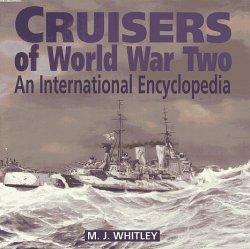By the middle of the second century ce, at the very latest, the practice of magic had become a generally recognized capital offense (cf. Mommsen 1889: 639-43; Rives 2003). And yet, we hear that various of the emperors of our period (both ‘‘good’’ and ‘‘bad’’) either practiced magic themselves, or openly employed magicians. Hadrian’s curiosity is said to have caused him to try all kinds of magic spells (Dio 79.11.3). An Egyptian magician named Arnouphis accompanied Marcus Aurelius during the Marcomannic wars, and worked a miracle which saved the Roman army (Dio 71.8.4). Caracalla was so taken with a magician named Sempronius Rufus that he recalled the man from the insular banishment to which Severus had condemned him (Dio 77.17.2). Indeed, Caracalla was supposedly altogether enthralled with magicians (Dio 77.18.4, Herod. 4.12.3-4); so too Elagabalus, who allegedly employed their arts on a daily basis (HA Heliogab. 8.2). The point of relating such information is this. An emperor, if he so chose, could apparently engage in an activity that otherwise was considered illegal, that for the rest of the population was perceived to be a capital offense. Was the princeps allowed to do, then, whatever he liked? And if so, in just what sense was such latitude granted him?
In fact, a number of ancient authors say precisely that an emperor could do whatever he pleased: he could determine that which was legally binding for everyone else, and, simultaneously, disregard any and every law, if he so wished. The process that had led to this freedom of maneuver began with Julius Caesar, who is supposed to have recommended that people accept all things decreed by him as legally binding (Suet. Jul. 77). By the early third century, the great jurist Ulpian flatly stated that whatever the emperor wanted would have the force of law (D. 1.4.1 pr.). Both Ulpian and Cassius Dio were furthermore of the opinion that the emperor stood above the law (D. 1.3.31; Dio 53.18.1). Dio, at one point in his history, illustrates the point. Septimius Severus’ praetorian prefect, Plautianus, is supposed to have caused several hundred men and boys, some even of high social rank, to be castrated, so that these might provide an appropriate entourage for his daughter. According to Dio, this made Plautianus seem to have power nearly equal to that possessed by the emperor (Dio 75.14.4-6). Or, we might remember something supposedly said by Julia Domna to Caracalla. When he was having trouble controlling his sexual desire for her, she reminded him that he could do whatever he liked, ‘‘or do you not know that you are emperor, and that you make the laws rather than obey them?’’ (HA Carac. 10.2).
More significant than such privately held, or informally expressed opinions, is the record of the actual bestowal of imperial power on Vespasian. A fragmentary inscription preserves a unique document, the so-called lex de imperio Vespasiani (‘‘Law Concerning the Imperial Power of Vespasian’’). The extant portion of this law shows the new emperor was granted various specific powers, rights, or prerogatives - e. g., he may constitute treaties with whomever he likes, he is allowed to convene the Senate whenever he wants, etc. Toward the middle of these dispensations, however, comes the following clause:
That whatever things he judges to be to the benefit of the state or befitting divine, human, public, or private affairs, to him shall there be the right and the power to carry out and to do these things, just as there was to the divine Augustus, and to Tiberius Julius Caesar Augustus, and to Tiberius Claudius Caesar Augustus Germanicus... (Crawford 1996: no. 39.17-21)
It seems difficult to imagine that this is anything other than an official, hence presumably ‘‘constitutionally’’ binding, proclamation of the informally-expressed sentiments listed above.
In short, while the position of emperor was, on the whole, not terribly well delineated or systematized by the Romans, the fact that an emperor had absolute, unfettered power was widely and well understood, and, at least in the case of the grant of imperial power to Vespasian, actually written into law. We are told that Septimius Severus and Caracalla frequently responded in the following manner to petitions: ‘‘It may be, indeed, that we are freed from the laws; nonetheless, we live according to them’’ (Inst. 2.17.8). Or, we can look back to the start of our period, when Pliny, with near astonishment, remarked that Trajan had decided to subordinate himself to the laws that were not meant to apply to an emperor. The reaction of Pliny, and his peers, was to desire to grant Trajan even more powers (Pan. 65.1).
At the core of such sentiments lies a very simple principle. Those emperors, who hoped to be understood as ‘‘good,’’ had to come to grips with the fact that the vast freedom allowed the princepswas not a carte blanche. Freedom from the law entailed, at least ideally, an extremely heavy burden of responsibility. The ‘‘good’’ emperor had to understand just how and when to subject himself to the laws. He had to understand what was expected of him by his society, by his subjects.
Saint Paul, advising his followers in Corinth as to the kind of behavior they should exhibit so as to please a heavenly audience, put the matter in such a way as could perfectly well have applied to the emperor and his behavior: ‘‘Everything is allowable to me, but not everything is helpful’’ (I Cor. 6.12). Let us then turn to the kinds of imperial behavior that might have been classed, in broad terms, as helpful.




 World History
World History









